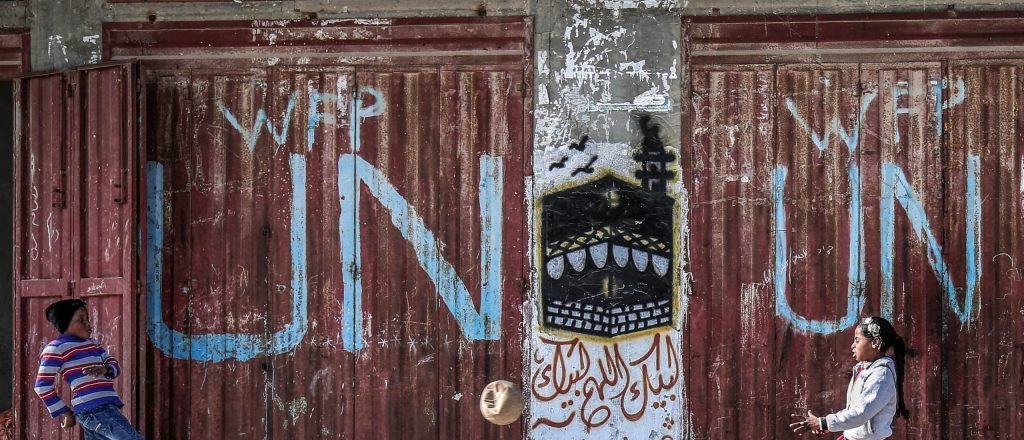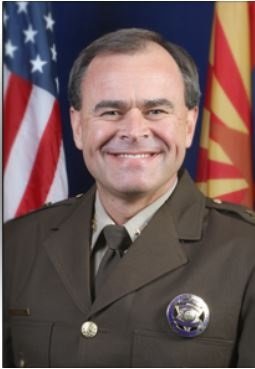- The United Nations is set to release sweeping policy proposals that will greatly expand its influence.
- Policy experts told the Daily Caller News Foundation that the policy seeks to impose tight controls on individual democracies and could endanger free speech.
- “This is clearly an effort to empower the Secretary-General and the United Nations,” Brett Schaefer, Senior Fellow on International Regulatory Affairs at The Heritage Foundation, told DCNF.
The United Nations (UN) has announced proposals to significantly expand its influence at its Future Summit conference in 2024. These include policies that give the United Nations an “emergency platform” in the event of a global crisis, and a digital code for the United Nations. The ethics of censoring “misinformation”.
of meeting It will bring together UN allies and non-governmental organizations to discuss overarching policy issues related to left-wing efforts, including scaling up government, digital censorship, and sweeping proposals against pandemics and climate change. Policy experts interviewed by the Daily Caller News Foundation said the policies raise concerns about the growing influence of the United Nations on individual democracies.
“When Americans called themselves British, we didn’t vote and couldn’t stand being ruled by people we’d never seen,” said the government watchdog group Protect the Public’s Trust. Director Michael Chamberlain told DCNF. “Autonomy is in our nation’s DNA. , it would be very dangerous for the United States to surrender its sovereignty and give any of these organizations the power to control the United States.”
In the event of a global crisis such as a “grave climactic event” or “future pandemic risk”, the Emergency Platform Policy allows the United Nations to “proactively promote an international response emphasizing the principles of equity and solidarity.” It will be possible to “promote”. According to the “Strengthening the international response to complex global shocks – emergency platform” policy: suggestion.
The proposal, written by UN Secretary-General António Guterres, would have the power to declare an emergency platform and extend it at his own whim if the policy is approved.
“This is clearly an effort to empower the Secretary-General and the United Nations,” Brett Schaefer, Senior Fellow on International Regulatory Affairs at The Heritage Foundation, told DCNF. “The Emergency Platform Policy Brief will give the Secretary-General ‘permanent powers’ to convene and implement responses to a wide range of international crises with minimal consultation with Member States, including the United States.”
The Emergency Platform will also ensure that “participating parties make a clear commitment to directly and immediately support the global response to complex shocks.” These participants include United Nations member states such as the United States, China and the United Kingdom. (Related: WHO proposal to adopt ‘social listening’ technology to combat ‘infodemics’ and misinformation unearthed)
“While Member States are not legally compelled to follow the Secretary-General’s recommendations, the pressure to ‘contribute meaningfully to the response and response’ [be] The responsibility to deliver on these promises is immense,” Schaefer said. “The United States should be proactive in helping other countries in times of crisis, but this should be a decision made by elected leaders, not driven by Turtle Bay.”
UN Secretary-General António Guterres remotely attends a conference in Geneva, Switzerland, July 6. Photo: Johannes Simon/Getty Images
Another “Future Summit” proposal aims to develop an online “code of conduct” to monetize and censor what the United Nations deems to be false information, titled “Information Integrity on Digital Platforms.” DCNF previously reported.
The United Nations and the DCNF report that the Global Disinformation Index (GDI), funded by the United Nations itself, cites several conservative media outlets as sources of misinformation, while left-wing sources are more credible. It does, says GDI’s “Disinformation Index.” risk assessment. For example, the GDI gave the New York Times, Washington Post, and BuzzFeed News a risk level of ‘low’ and the Daily Wire, New York Post, and the American Conservative Party a risk level of ‘high’.
“From health and gender equality to peace, justice, education and climate action, measures to limit the impact of misinformation and hate speech will support efforts to achieve a sustainable future.” the United Nations Secretary General said. I have written Included in the “Information Integrity on Digital Platforms” proposal. (Related: President Obama stresses ‘need’ for ‘digital fingerprints’ to crack down on ‘untrue’ information)
Schaefer said the UN’s definition of “misinformation” poses a big risk to free speech.
“We believe that efforts to suppress ‘disinformation’ and ‘misinformation’ will in turn silence dissenting voices and suppress inconvenient evidence such as the leaked Chinese lab theory about the origin of the new coronavirus. I’ve seen first-hand how it’s being abused by people,” Schaefer said. “It’s hard to find a piece of United Nations code that doesn’t abuse the First Amendment.”
Chamberlain concurred, adding that the United Nations had no basis for establishing this policy in democracies.
“Americans are still protected by the First Amendment to the U.S. Constitution, which prohibits governments from violating their right to free speech,” Chamberlain said. “Governments are not only prohibited from trampling on these rights, they are also not allowed to delegate the act of trampling on to others. Even if it is an international organization.”
Calling for guardrails to stop the spread of hate and lies in the online world, @Antonio Guterres A new report presents a proposed code of conduct for information integrity on digital platforms. https://t.co/7ZoX9i81uk pic.twitter.com/Punt48XxYi
— United Nations (@UN) June 14, 2023
Other policy proposals include global vaccination plan For COVID-19, we aim to administer at least 11 billion doses globally and increase funding and authority for the World Health Organization.
“WHO’s independence, power and funding must be strengthened,” UN secretary-general wrote in “Our Common Agenda” report. “This includes increased financial stability and autonomy based on fully unallocated resources, increased funding, and a systematic replenishment process for the remainder of the budget.”
Another proposal calls for achieving net zero carbon emissions by 2050 “or sooner” by phasing out fossil and coal energy worldwide and encouraging financial institutions to move from high emitting sectors to a climate resilient net. By forcing a “shift to zero economy,” it seeks to step up efforts to tackle climate change. ”
In “Our Common Challenge,” the UN Secretary-General said, “We need to strengthen our populations, infrastructure, economies and societies to withstand climate change, but adaptation and resilience remain critical. “There is still a shortage of funds,” he said. report.
Schaefer told DCNF he remains skeptical about whether a UN climate change plan is possible.
“China’s priority, and that of many other countries, especially developing countries, is to maximize economic growth and improve living standards. “The restrictions are not adhered to as long as they prevent them from doing so,” Schaefer said.
The UN did not respond to requests for comment.
All content produced by the Daily Caller News Foundation, an independent, non-partisan news distribution service, is available free of charge to legitimate news publishers capable of serving large audiences. All reissues must include our company logo, press byline, and DCNF affiliation. If you have any questions about our guidelines or partnering with us, please contact us at licensing@dailycallernewsfoundation.org.
















